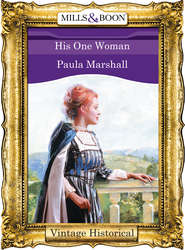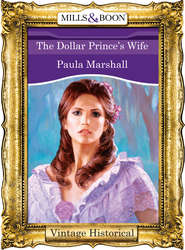По всем вопросам обращайтесь на: info@litportal.ru
(©) 2003-2024.
✖
An Unconventional Heiress
Настройки чтения
Размер шрифта
Высота строк
Поля
Her joy did not last long. Mrs Hackett was a woman with the build of a pugilist and an expression that was so sour that Sarah felt she probably only had to look at milk to make it turn. If her manner to Sarah was surly, her behaviour towards the servants, also provided by Government House, was downright cruel. Sarah remembered her introduction to them and to Mrs Hackett’s malevolence…
She had been seated at her portable writing desk, trying to finish a letter to her best friend and John’s sweetheart, Emily Hazeldean, when Mrs Hackett had come in to say that the servants had just arrived in a gig driven by one of the corporals with whom her late husband had served.
‘The servants has come, Mam, and most unsatisfactory they are.’
Sarah put down her pen. ‘Why, what is wrong with them, Mrs Hackett?’
‘Sluts,’ she said, balefully, ‘and trollops.’
‘You are speaking of the servants?’
‘Who else, Mam? They’re a convict and a convict’s daughter, and no better than they should be. They’re waiting in the kitchen for you to look at them. You said as how you would.’
She spoke as though Sarah had expressed a wish so outlandish that it scarcely needed to be discussed. Sarah was half-annoyed, half-amused by her insolence, reflecting that from her manner of speaking one might think that Mrs Hackett was the mistress and Sarah the servant!
Settling into her new home had, as Alan Kerr had supposed, taken up a great deal of her time and energy. John, of course, had left everything to her. Not only that, he had departed earlier that morning on yet another sketching expedition and had announced that he would not be back until late since he proposed to dine in the Officers’ Mess again. To make matters worse, she was unable to mend her quill pen since he had inconsiderately made off, without permission, with her only sharp knife, having been unable to find his own.
The letter to Miss Emily Hazeldean would have to wait. Sarah set off for the tiny, stiflingly hot kitchen, sighing gently. What appeared to be two bundles of clothing stood waiting for her. The older and larger of the shapeless pair was introduced to her as Nellie Riley; the younger and smaller as Sukie Thwaites. They were both, it seems, untrained and their final roles as assistant cook and maid-of-all-work were to be decided in the future.
Sarah thought that she had never before seen such an unlikely pair. The Governor’s aide who had done all the hiring for them had explained that, due to the shortage of women in the colony, it would be difficult to find anyone who wished to be a servant at all, let alone anyone who was trained.
Both women were wearing coarse black-and-red print frocks, gaudy shawls and heavy, clog-like shoes. Their hair was pinned up inside large sun-bonnets, which they apparently wore indoors as well as out. At Mrs Hackett’s prompting they both curtsied and addressed Sarah as Mum. She was compelled to admit that Mrs Hackett had not misrepresented their unattractiveness.
She was also eager to inform Sarah of Nellie’s disreputable past.
‘This here girl was transported because she was a thief, and her brother with her. Best to keep an eye on the silver, Mam.’
What she did not say was that Nellie had supplemented her meagre income at the Female Factory, where convict women were sent on arrival, by selling herself to any man who had a penny or some little luxury to offer her.
‘If she don’t please, Mam, why, you’ve only to say so and we can send her back where she came from and ask for another gal to take her place.’
Sarah had sometimes been responsible for the hiring and firing of servants back in England, but she had never felt the kind of revulsion that she experienced when she contemplated returning this miserable piece of humanity to the Factory and its cruel discipline. Sukie, however, was a free agent, but as she was an Emancipist’s daughter Mrs Hackett made it plain that her feelings were not to be considered, either.
‘I hope that you will be happy here,’ Sarah said inadequately, aware of both the young women’s sullen resentment of her for her pampered appearance, as well as Mrs Hackett’s open contempt for what she thought of as Sarah’s softness. She suddenly remembered what Tom Dilhorne had warned her of in his shop and thought that it was the most sensible piece of advice she had been given since the Pomona had docked.
At least, back in England her life had been spent at some distance from that of her many servants, but here, in this tiny house, their presence would be close and confining. Never mind, she thought, I have my painting and drawing to occupy me, and when the weather is fine I shall be able to ride once John has found me a suitable horse—and perhaps a carriage.
One thing, at least, was to the good. Since setting up house she had been so busy that she had not had time to think about Dr Kerr, the Governor or Tom Dilhorne, or whether or not she ought to speak to Emancipists. Their luggage had to be unpacked, their meals overseen, and John’s comfort to be satisfied. He had no intention of looking after himself since in England he had never needed to; a highly trained staff had ministered to his every want. By contrast, in Sydney, all that they had in the way of servants were Mrs Hackett, two unwilling, untrained females and John’s man, Carter.
She returned to her writing desk and tried to continue her letter to Emily.
‘You would scarcely believe,’ she wrote, ‘how primitive we are here. All that distinguishes us from the Pomona is that the deck no longer heaves beneath our feet…’
She sneezed and looked around the tiny room. Dust was everywhere. Nellie Riley suddenly burst in, waving a feather mop and began to use it with great vigour—which only served to waft it around the room in a red cloud. This started Sarah sneezing again.
‘Sorry, Mum,’ said Nellie, looking anything but sorry. ‘Mrs Hackett was telling me to begin me duties by cleaning the room since it hadn’t been done for days.’
Her expression told Sarah, better than words, that the whole business of keeping clean was a complete waste of time so far as Nellie was concerned.
Sarah waved her pen at her. It was no longer fit to write with, but waving it somehow expressed her feelings.
‘Good God! Is it always like this? And where does the dust come from—and why is it red?’
‘Well, it’s allus hot, if that’s what you mean, but it’s not allus as dusty as this. It’s them bricks.’
‘Them bricks?’ asked Sarah faintly.
‘And the wind. Why, Mum, when the winds’ southerly the dust from the brick-fields blows across the town. It’s the Governor’s fault.’
This remarkable demonstration of the Governor’s climatic powers intrigued Sarah. ‘The Governor’s fault?’
‘Aye, Mum, cos he’s a-building of the barracks and the hospital and they need bricks from the fields. Are ye comfortable, Mum? Can I get you anything?’
Convict she might be, but there was a frankness about Nellie’s speech that interested Sarah, who was used to the servility of home. There was almost a contempt in the manner in which convicts and Emancipists alike spoke to the respectable. She knew now why Mrs Middleton had fumed to her about the speech and behaviour of the servants and shopkeepers in Sydney.
She sighed. The letter to Emily must wait. She walked to the window and looked out at the swirling red dust and the brazen sun. On the verandah opposite, not one, but two cockatoos, restless in their cages, squawked their displeasure at the world. She sympathised with them.
It was a relief when there was a knock at the door and Mrs Hackett came in with a letter for her. It was from Mrs Menzies, inviting her to a soirée at the weekend.
Later, looking back on this time, Sarah thought that her first weeks in Sydney passed like a dream. There was so much to arrange, so much to do that in the past had always been done for her. Fortunately for her peace of mind she had not encountered Dr Kerr again. He had been called, Tom Dilhorne told her, to treat a fever which was raging in Paramatta. His absence brought on such an access of high spirits that John feared that the fever had reached Sydney, or so he chose to quiz her, not knowing the true cause.
Sarah had been so busy herself that she scarcely found time to paint, although this had been the excuse she had given for undertaking this journey with John. Her father had encouraged her to develop her talent, but unlike John she had many duties that took up her time. First she had been her father’s hostess, her mother having died at her birth, and then, after her father’s death, she had performed the same function for her brother.
Coming to Sydney had seemed an opportunity to develop her skills since she thought that she would surely have more time to spend on herself. What she had not foreseen was that the primitive nature of life in New South Wales would create even more demands on her.
‘I would never have believed it,’ she told Lucy Middleton when they were upstairs in the Menzies’s bedroom, inspecting themselves in a long mirror before going downstairs to enjoy the pleasures of a typical Sydney soirée. ‘I spent this morning supervising the wash while Mrs Hackett went to the market to buy provisions. She had left Nellie in charge of it, but as you might guess her attitude to cleanliness is best expressed in the old adage, “what the eye can’t see the heart can’t grieve over.” She actually said to me, “I don’t know why we bother, Mum, it will only have to be done again next week. All this dusting and scrubbing don’t seem natural to me.”’
Lucy adjusted a curl. ‘I really can’t understand why you bother with her, Sarah. Why don’t you just send her back to the Female Factory?’
Sarah gave a sigh. She knew very well that Mrs Hackett would have preferred to send Nellie back to the factory soon after she had arrived in the hope that she might receive someone more suitable in return. She, on the other hand, found that although she could endure the idea of women whom she did not know being cooped up in prison, it was unthinkable that Nellie, whom she now knew, should be sent back there.
It was her free spirit, which Mrs Hackett could not crush, that Sarah found admirable, with the result that she had ended up being the laundress herself in order to ensure that Mrs Hackett’s complaints could not be seen to be justified and Nellie’s removal determined on. She found it impossible to try to explain this to Lucy, particularly since she found herself out of sympathy with the rest of the colonial ladies whom she had met. Their preoccupation with precedence, which she had thought to be peculiar to Mrs Middleton, turned out to be common to them all. Being a member of the highest society in England, she found little to choose between all those beneath her in rank.
So she changed the subject of Nellie and Mrs Hackett and commented on Sydney’s fixation with precedence and propriety instead.
‘You see, Sarah,’ said Lucy while she was rearranging the flowers in Sarah’s hair, ‘you’re so grand yourself that you don’t understand the differences that lie between a clerk in the Government offices and one of the shopkeepers. What’s worse, you’re so sure of yourself that you can afford to talk to Tom Dilhorne and Will French, even though they’re Emancipists—and do the wash, as well. You don’t fear that you’re lowering yourself, as Mama does. And it’s no good saying Pish and Tush to me, either, that’s the truth.’
‘I like it when you scold me,’ said Sarah. ‘It’s like being scolded by a kitten. No one else, apart from John, ever reprimands me.’ Which wasn’t strictly true, because Tom Dilhorne had said something similar to her the other day.
‘Oh, you may laugh,’ replied Lucy, ‘but you know that you wouldn’t marry any of them. Only one of your own kind.’
She stopped and looked thoughtfully at Sarah. ‘I don’t know, though. There’s a wildness about you sometimes. Look at the way you spoke to Dr Kerr in Hyde Park.’
‘Oh, Dr Kerr.’ Sarah shrugged. ‘Let us not speak of Dr Kerr. Forgive me, Lucy, for saying this, but you amaze me sometimes—you look as though you haven’t an idea in your head—and then…’ and she shrugged again.
‘I know—that’s what Mama and the men think, that I’m stupid. It’s better that way, Sarah. You don’t annoy them—and you can always get what you want if they believe that you’re just a dear little kitten.’
Sarah nodded. ‘I know who is going to make a good marriage, thinking like that, Lucy. That is, if you don’t meet someone devastatingly handsome, and quite worthless, and fall head over heels in love with him. I don’t advise you to do that.’











